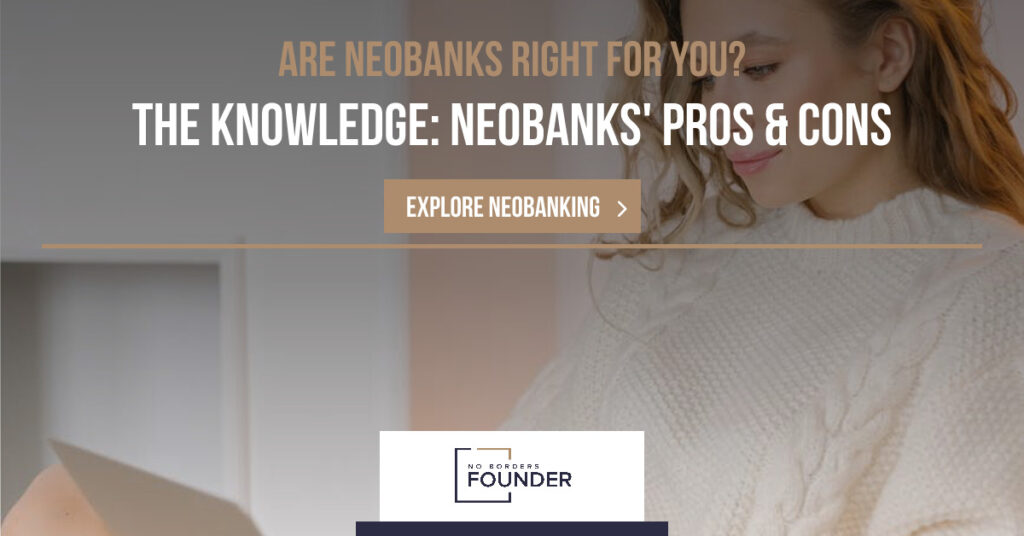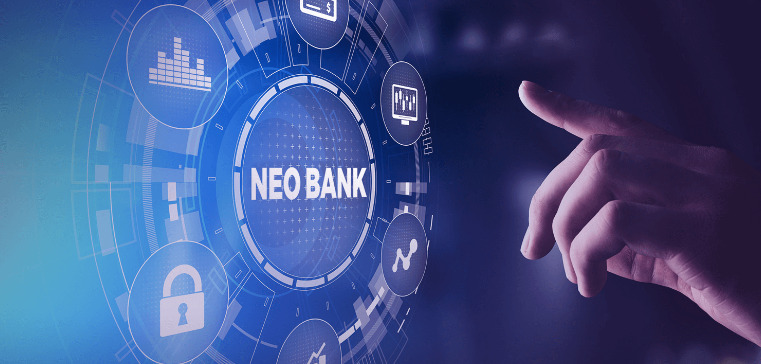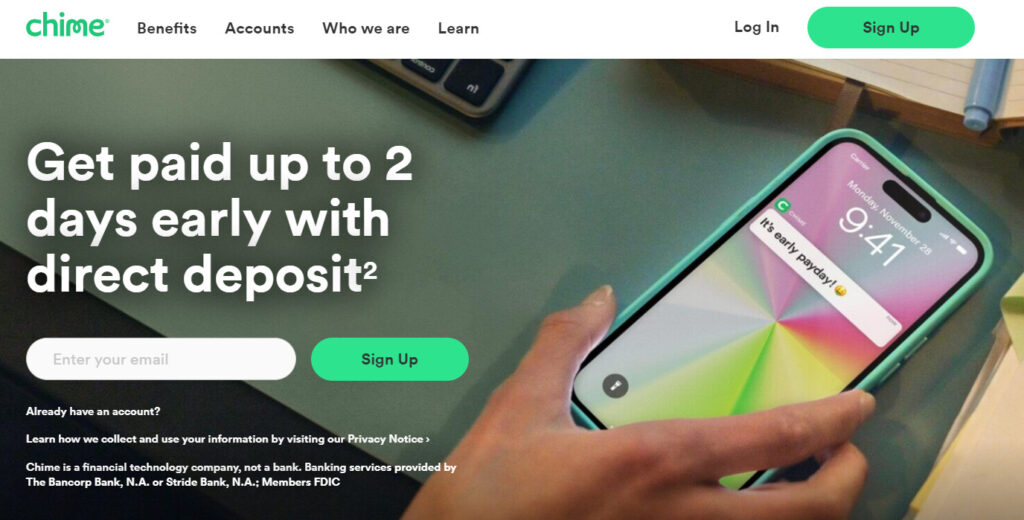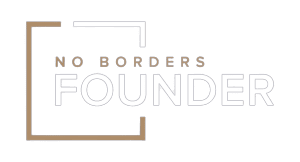Navigating the Digital Currents: An Exhaustive Analysis on Neobanks – Boons and Banes for Entrepreneurs of the New Age

Immersing Emotionally in the Neobanking Era
Remember the days when the banking world was filled with paperwork, where time seemed to move at a snail’s pace and progress felt burdensome? That era, reminiscent of towering buildings, long queues, impersonal interactions, and often cold and unyielding environments, was what defined banking.
As we transitioned into the 21st century, a digital wind began to gust across the financial landscape. It whispered promises of change, carrying the seeds of a new revolution that aimed to redefine banking. It was a revolution powered by an entity known as the Neobank, which proposed to transform banking from a static, physical, and often rigid activity into a dynamic, portable, and seamless digital experience.
Dissecting Neobanks: An In-depth Perspective of Pros and Cons
Embracing the Advantages of Neobanks in Your Business Environment
1. Unleashed Global Accessibility: With neobanks, the world is literally at your fingertips. Wherever you are, at any time, your financial status, transactions, and services are just a few clicks away. Visualize a bank branch that fits in your pocket, devoid of the frustrating delays and limitations of the physical world.
2. Lean Operations Leading to Cost-Effective Services: The traditional banking system, with its physical infrastructure and overhead costs, often transfers these expenses onto their customers in the form of various fees. Neobanks, utilizing digital-first operations, efficiently manage to keep costs at a minimum. This economical operation reflects in their competitive fees, which are typically lower than those of traditional banks.
3. Customer-centric Services Laden with Innovation: Neobanks consistently push the envelope in terms of what’s possible in banking. By integrating cutting-edge technology, they provide an array of innovative features that make banking a personalized, customer-centric experience. From real-time transaction notifications and budgeting tools to AI-driven financial advice, banking has transformed from a mundane chore to an engaging and insightful experience.
Identifying and Understanding the Possible Shortcomings of Neobanks
1. Dependence on Stable Internet Connectivity: The crux of neobanks is their digital-first approach, which becomes a liability in the absence of stable internet connectivity. In such scenarios, access to financial operations can become limited or entirely non-existent.
2. Limited Product Offerings: Not all neobanks offer a comprehensive suite of financial services. While they provide the essential services, they may lack in areas like large business loans, mortgages, or complex financial products.
3. Lack of Personalized, Face-to-Face Services: Neobanks generally offer customer support, but it is usually limited to chats or emails. For more complex banking needs, traditional banks still hold an advantage with their face-to-face personalized services.
4. Regulatory Concerns: There is an ongoing debate regarding the regulatory framework that applies to neobanks. This relative regulatory ambiguity can be a concern for some entrepreneurs.
The Phenomenon of Neobanking: Through the Entrepreneurial Prism
As an entrepreneur, the primary objective is to focus on nurturing your core business. Having an efficient, accessible, and cost-effective banking solution can be an invaluable asset. Neobanks, with their innovative banking solutions, offer an excellent option for entrepreneurs looking to simplify their financial operations.
But, while the benefits are lucrative, the challenges – internet connectivity issues, limited product offerings, lack of face-to-face services, and regulatory concerns – are critical aspects to consider. Therefore, an entrepreneur’s decision to use a neobank should involve careful analysis of both the opportunities and challenges.
Mastering Strategies to Counterbalance Risks Associated with Neobanking
To reduce the risk associated with internet connectivity, businesses can employ redundancies and backup options to ensure uninterrupted financial operations. Regarding limited product offerings, businesses can opt for a mix of neobank and traditional bank services to cater to their financial needs comprehensively.
Addressing the absence of personalized face-to-face services, businesses can seek external advisory or consultancy services for complex financial matters. Regulatory concerns can be navigated by choosing well-regulated neobanks and staying updated with evolving regulatory standards.

Comprehensive FAQs: Clearing the Air on Neobanking
What is a Neobank?
A Neobank is a digital-first financial institution that operates primarily via mobile apps and websites. Unlike traditional banks, they are typically devoid of physical branches. Neobanks leverage technology to provide customer-centric services with lower costs, creating a more streamlined and accessible banking experience.
How Secure are Neobanks?
Neobanks utilize advanced security measures to protect customer data. This includes end-to-end encryption, multi-factor authentication, and biometrics. However, like all digital platforms, they are not completely immune to cyber threats. It is vital to choose Neobanks with robust security protocols and a solid reputation for keeping their customer data safe.
Can a Neobank Replace my Traditional Bank?
The answer to this question largely depends on your specific financial needs and preferences. Neobanks offer several benefits such as convenience, lower fees, and innovative features that can make them a viable alternative to traditional banking. However, they may not offer a full range of financial services like mortgages or complex financial products. If you require these services, a combination of neobanking and traditional banking could be a suitable solution.
What are the Fees Associated with Neobanks?
One of the key benefits of Neobanks is their lower fee structure. As they have significantly less overhead costs than traditional banks, many Neobanks can offer services like checking accounts with zero monthly fees. However, the fee structure can vary across different Neobanks, so it’s important to review the costs associated with the specific services you plan to use.
How Do Neobanks Make Money?
Neobanks primarily earn money through interchange fees, which are fees paid by merchants when customers use their Neobank cards for purchases. Some Neobanks also offer premium features or accounts for a fee. Additionally, Neobanks may earn interest on deposits or loans, depending on their business model and regulatory status.
Are Neobanks Regulated Like Traditional Banks?
Regulations for Neobanks vary depending on the region and the specific services they provide. Some Neobanks are fully licensed banks and are subject to the same regulations as traditional banks. Others operate under a sponsored banking license or partner with traditional banks for their banking infrastructure, meaning they are regulated indirectly.
Can I Deposit Cash in a Neobank?
Most Neobanks do not accept cash deposits due to their lack of physical branches. However, some Neobanks have partnerships with retail networks that allow cash deposits. Digital transfers, direct deposits, and mobile check deposits are more common methods of depositing money into a Neobank account.
What Happens if I Lose Internet Connection?
Without a stable internet connection, access to your Neobank account may be limited. However, once the connection is restored, you should be able to access your account and transactions again. Neobanks often offer offline features like viewing your balance or recent transactions, but for executing transactions or accessing real-time data, an internet connection is necessary.
What Products and Services do Neobanks Offer?
Neobanks typically offer a range of financial services including checking accounts, savings accounts, payment processing, and money transfers. Many also offer budgeting and financial planning tools. Some Neobanks offer additional services such as loans, insurance, and investment products. The range of services can vary greatly between Neobanks, so it’s important to research and compare different Neobanks to find one that meets your needs.
How Can I Decide if a Neobank is Right for my Business?
Deciding whether a Neobank is right for your business involves evaluating your business’s specific financial needs, your comfort level with using digital platforms, and your preference for face-to-face service versus digital service. Consider the cost, convenience, services offered, and security measures of the Neobank. Additionally, look at customer reviews and the Neobank’s customer service reputation. It may be helpful to consult with a financial advisor to make an informed decision.
The Distinctive Approach of No Borders Founder to Neobanking: Imagining the Future
At No Borders Founder, we believe in leveraging the digital revolution to break down financial barriers, cultivating an environment where businesses can thrive unencumbered. We view the rise of neobanks as an opportunity to bring forth a new era of inclusive, efficient, and affordable banking services.
Closing Thoughts: An Invitation to Join the No Borders Founder Revolution
As we embark on this transformative journey, we extend an invitation for you to join the No Borders Founder movement. Embrace the digital wave, harness the potential of neobanks, and use them as a catalyst for your entrepreneurial vision. Remember, at No Borders Founder, we’re building a world without financial limitations – a world where your business dreams know no bounds.

International Spotlight: Top 10 Global Neobanks
- Revolut (UK) – Revolut began as a no-fee foreign exchange app but has since expanded into a full-fledged Neobank. Its services now include personal and business accounts, cryptocurrency and stock trading, and peer-to-peer payments. Revolut serves over 15 million customers globally and is particularly popular among travelers due to its competitive foreign exchange rates.
- N26 (Germany) – N26 was one of the first Neobanks to receive a full European banking license. This Neobank offers user-friendly mobile banking, budgeting tools, savings plans, and insurance products to its more than 7 million customers. N26 is known for its seamless sign-up process and clear, intuitive user interface.
- Chime (USA) – As one of the largest Neobanks in the US, Chime offers fee-free checking accounts, savings accounts with automatic savings features, and a secured credit card for building credit. Chime’s focus on financial health and its lack of traditional banking fees have made it a popular choice among American consumers.
- Monzo (UK) – Monzo, another UK-based Neobank, is known for its innovative features like instant spending notifications, budgeting tools, and “pots” for separating your money for different purposes. With over 4 million users, Monzo has also made inroads into business banking and lending.
- Starling Bank (UK) – Starling Bank offers personal, business, joint, and euro accounts with no monthly fees. It also offers integrations with a range of financial management tools and has a full banking license, providing its customers with the same protections as a traditional bank.
- Up Bank (Australia) – Up Bank is a digital bank offering savings and transaction accounts with a focus on helping customers to save and budget effectively. It provides insights on spending, automatic round-up savings, and multiple savings goals. Up Bank is backed by Bendigo and Adelaide Bank, a top Australian bank.
- NuBank (Brazil) – NuBank is the largest Fintech in Latin America and one of the largest in the world. It offers a digital bank account (NuConta), a credit card, a personal loan service, and a rewards program. NuBank has made banking more accessible to millions of Brazilians, many of whom were previously unbanked.
- Neat (Hong Kong) – Neat is a Neobank for businesses, particularly start-ups, SMEs, and online sellers. It provides multi-currency accounts, global payments, and integrations with popular e-commerce platforms and accounting tools. Neat is an excellent solution for businesses operating in the global marketplace.
- WeBank (China) – WeBank is China’s first private commercial Neobank and is backed by Tencent. It offers wealth management, lending, and payment services, leveraging big data and cutting-edge technology to drive financial inclusion in China.
- KakaoBank (South Korea) – KakaoBank is South Korea’s first internet-only bank. It provides a variety of services, including personal and home loans, deposits, money transfers, and international remittance services, all accessible through a user-friendly mobile app.
Each of these Neobanks provides innovative solutions and contributes to the global development of digital banking. As Neobanks continue to grow and evolve, it will be interesting to see what the future holds for the banking industry as a whole.










